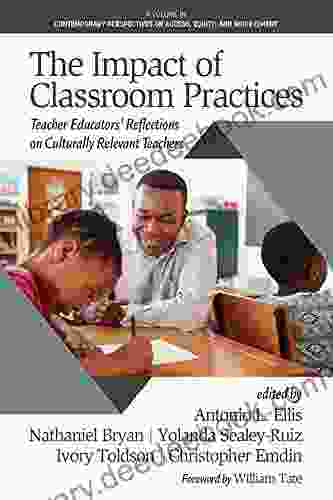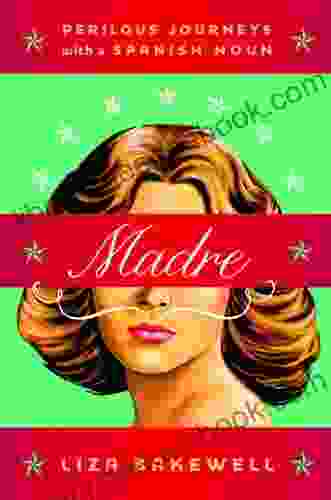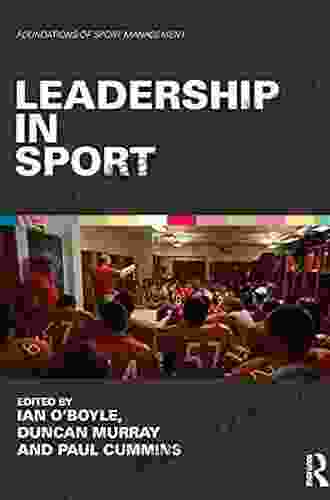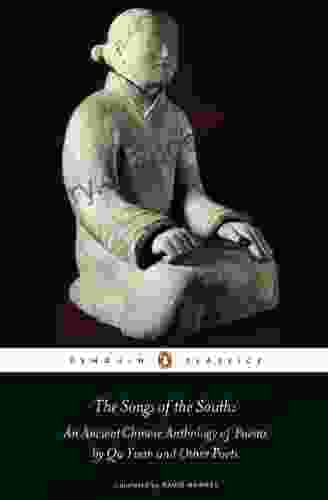Madre: The Perilous Journeys of Spanish Nouns

Nouns are the building blocks of any language, and Spanish is no exception. They are the words that we use to name people, places, things, and ideas. But for non-native speakers, Spanish nouns can be a bit of a minefield. That's because Spanish nouns have gender and number, and they must be used correctly in order to communicate effectively.
In this article, we'll take a look at the different types of Spanish nouns and how to use them correctly. We'll also provide some tips for avoiding common mistakes.
4.3 out of 5
| Language | : | English |
| File size | : | 642 KB |
| Text-to-Speech | : | Enabled |
| Screen Reader | : | Supported |
| Enhanced typesetting | : | Enabled |
| Print length | : | 214 pages |
Gender
Spanish nouns are either masculine or feminine. The gender of a noun is usually determined by its ending. Nouns that end in -o or -e are typically masculine, while nouns that end in -a or -dad are typically feminine.
There are some exceptions to this rule, of course. For example, the word "día" (day) is masculine even though it ends in -a.
The gender of a noun is important because it affects the way that it is used in a sentence. For example, masculine nouns are used with masculine adjectives and articles, while feminine nouns are used with feminine adjectives and articles.
Number
Spanish nouns can be either singular or plural. The singular form of a noun is used to refer to one person, place, thing, or idea. The plural form of a noun is used to refer to two or more people, places, things, or ideas.
The plural form of a noun is usually formed by adding -s to the singular form. For example, the singular form of "libro" (book) is "libro", while the plural form is "libros".
There are some exceptions to this rule, of course. For example, the plural form of "ojo" (eye) is "ojos", and the plural form of "pez" (fish) is "peces".
The number of a noun is important because it affects the way that it is used in a sentence. For example, singular nouns are used with singular verbs, while plural nouns are used with plural verbs.
Definite and Indefinite Articles
Spanish has two types of articles: definite and indefinite. Definite articles are used to refer to specific people, places, things, or ideas. Indefinite articles are used to refer to general people, places, things, or ideas.
The definite articles are "el" (masculine singular),"la" (feminine singular),and "los" (masculine plural) and "las" (feminine plural). The indefinite articles are "un" (masculine singular),"una" (feminine singular),and "unos" (masculine plural) and "unas" (feminine plural).
The choice of which article to use depends on the gender and number of the noun.
Demonstrative Adjectives
Demonstrative adjectives are used to point out specific people, places, things, or ideas. The demonstrative adjectives in Spanish are "este" (this),"ese" (that),and "aquel" (that over there).
The choice of which demonstrative adjective to use depends on the distance between the speaker and the person, place, thing, or idea being pointed out.
Possessive Adjectives
Possessive adjectives are used to show ownership. The possessive adjectives in Spanish are "mi" (my),"tu" (your),"su" (his/her/its),"nuestro" (our),and "vuestro" (your).
The choice of which possessive adjective to use depends on the gender and number of the noun being possessed.
Quantifiers
Quantifiers are used to indicate the quantity of people, places, things, or ideas. The quantifiers in Spanish include "mucho" (much),"poco" (little),"bastante" (enough),"demasiado" (too much),and "todo" (all).
The choice of which quantifier to use depends on the amount of people, places, things, or ideas being referred to.
Ordinal Numbers
Ordinal numbers are used to indicate the order of people, places, things, or ideas. The ordinal numbers in Spanish include "primero" (first),"segundo" (second),"tercero" (third),"cuarto" (fourth),and "quinto" (fifth).
The choice of which ordinal number to use depends on the position of the person, place, thing, or idea being referred to.
Cardinal Numbers
Cardinal numbers are used to indicate the number of people, places, things, or ideas. The cardinal numbers in Spanish include "uno" (one),"dos" (two),"tres" (three),"cuatro" (four),and "cinco" (five).
The choice of which cardinal number to use depends on the number of people, places, things, or ideas being referred to.
Exclamations
Exclamations are used to express strong emotions. The exclamations in Spanish include "¡Ay!" (ouch),"¡Bravo!" (bravo),"¡Caramba!" (gosh),and "¡Olé!" (olé).
The choice of which exclamation to use depends on the emotion being expressed.
Questions
Questions are used to ask for information. The question words in Spanish include "¿Quién?" (who),"¿Qué?" (what),"¿Dónde?" (where),and "¿Cuándo?" (when).
The choice of which question word to use depends on the information being asked for.
Negation
Negation is used to express the opposite of something. The negative words in Spanish include "no" (no) and "nunca" (never).
The choice of which negative word to use depends on the sentence being negated.
Imperatives
Imperatives are used to give commands or instructions. The imperative forms of verbs in Spanish are formed by dropping the -ar, -er, or -ir ending from the infinitive form of the verb.
The choice of which imperative form to use depends on the person being addressed.
Spanish nouns can be a bit of a challenge for non-native speakers, but with a little practice, you'll be using them like a pro in no time. Just remember to pay attention to the gender, number, and other characteristics of nouns, and you'll be able to communicate effectively in Spanish.
4.3 out of 5
| Language | : | English |
| File size | : | 642 KB |
| Text-to-Speech | : | Enabled |
| Screen Reader | : | Supported |
| Enhanced typesetting | : | Enabled |
| Print length | : | 214 pages |
Do you want to contribute by writing guest posts on this blog?
Please contact us and send us a resume of previous articles that you have written.
 Novel
Novel Page
Page Text
Text Paperback
Paperback Magazine
Magazine Paragraph
Paragraph Sentence
Sentence Bookmark
Bookmark Shelf
Shelf Bibliography
Bibliography Preface
Preface Synopsis
Synopsis Annotation
Annotation Manuscript
Manuscript Codex
Codex Tome
Tome Narrative
Narrative Biography
Biography Autobiography
Autobiography Memoir
Memoir Reference
Reference Encyclopedia
Encyclopedia Narrator
Narrator Character
Character Resolution
Resolution Librarian
Librarian Catalog
Catalog Card Catalog
Card Catalog Borrowing
Borrowing Stacks
Stacks Periodicals
Periodicals Study
Study Lending
Lending Academic
Academic Reading Room
Reading Room Rare Books
Rare Books Thesis
Thesis Awards
Awards Book Club
Book Club Theory
Theory Bruno Lumbroso
Bruno Lumbroso David Bowman
David Bowman Byron Edgington
Byron Edgington Melinda Crow
Melinda Crow C Coco De Young
C Coco De Young Leslie Hooton
Leslie Hooton Hugo Bennings
Hugo Bennings Michelle Mohrweis
Michelle Mohrweis Bill Yenne
Bill Yenne Ketan Joshi
Ketan Joshi Elizabeth Lim
Elizabeth Lim Renee Rominger
Renee Rominger Robert Steele
Robert Steele Becky Aud Jennison
Becky Aud Jennison Eric Auxier
Eric Auxier Judith Hicks Stiehm
Judith Hicks Stiehm Dima Alzayat
Dima Alzayat Tomasz Jedrowski
Tomasz Jedrowski T V Reed
T V Reed Chris Mares
Chris Mares
Light bulbAdvertise smarter! Our strategic ad space ensures maximum exposure. Reserve your spot today!
 Ted SimmonsFollow ·14.4k
Ted SimmonsFollow ·14.4k Cade SimmonsFollow ·4.7k
Cade SimmonsFollow ·4.7k Aleksandr PushkinFollow ·9.8k
Aleksandr PushkinFollow ·9.8k Douglas AdamsFollow ·5k
Douglas AdamsFollow ·5k Jamie BellFollow ·12.3k
Jamie BellFollow ·12.3k Garrett BellFollow ·13.9k
Garrett BellFollow ·13.9k Jamal BlairFollow ·9.1k
Jamal BlairFollow ·9.1k Hector BlairFollow ·16.4k
Hector BlairFollow ·16.4k

 Ralph Ellison
Ralph EllisonHealth Care Global Viewpoints: Samantha Whiskey
Samantha Whiskey is a global health...

 Gabriel Garcia Marquez
Gabriel Garcia MarquezTeacher Educators' Reflections on Culturally Relevant...
In today's...

 Levi Powell
Levi PowellSustainable Project Management: The GPM Reference Guide...
In today's rapidly changing world,...

 Isaac Bell
Isaac BellThe Captivating World of "Dreaming Awake Falling Under"
A Journey Through...

 Clarence Brooks
Clarence BrooksGovernance Regulations Valuations Mergers And...
In today's complex and ever-changing...
4.3 out of 5
| Language | : | English |
| File size | : | 642 KB |
| Text-to-Speech | : | Enabled |
| Screen Reader | : | Supported |
| Enhanced typesetting | : | Enabled |
| Print length | : | 214 pages |














